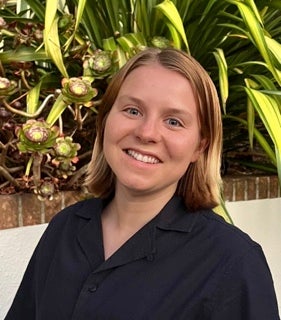By Farris Peale ’24

I joined the Criminal Justice Institute to work closely with our clients, and to become a more effective defense attorney. Over this past year, CJI taught me all that I hoped it would—and so much more.
When I met my first client in a Boston courthouse lock-up, we spoke through a plate of plexiglass. I could not shake his hand when I introduced myself, although I was asking him to put his trust in me—a big ask, given that I was just a law student.
I discovered that my client was being held on weak charges that were filed against him years earlier. The charges remained unresolved because he was deemed not competent. Being found not competent means that you lack the capacities required to stand trial, making both acquittal and conviction impossible. My client therefore remained under enduring court supervision, although he had never been convicted of a crime, and although he could never go to trial to disprove the allegations.
My client was not the first to face these impossible circumstances. In 2003, in Commonwealth v. Hatch, the Supreme Judicial Court held that people deemed not competent could request a hearing to require that the Commonwealth prove by “substantial evidence” the charges against them. That became our plan: get a Hatch hearing and fight the charges on the merits.
However, although Hatch hearings have been around for at least twenty years, the mechanism is rarely used; I could track down only a handful of local lawyers who had argued a Hatch motion before. I was advocating for an unfamiliar procedure as a newcomer to the courthouse, and I needed to find a way to make my argument credible. So I did my best to become a Hatch expert—researching the caselaw and relevant statutory provision, and thinking through tough evidentiary issues.
During many months of fighting for the Hatch hearing, the CJI community proved invaluable. My supervisor coached me through endless scenarios. Together, we built a trial binder that could barely close and mapped out a flowchart that charted dozens of contingencies for the day of the hearing. Peers stayed up at night with me in the CJI conference room, mooting my opening, closing, and cross-examination. Our social worker was there with me every step of the way. Ultimately, the hearing was granted. We demonstrated a lack of substantial evidence to support the charges, and we won. Case dismissed.
I am grateful that CJI taught me how to litigate a tough case—how to strategize thoroughly, do the research, and craft an oral argument. I also valued the crucial learning that came alongside our hearing preparation. Over many court days, car rides, jail visits, and lunches, our entire team built a strong relationship with our client. It is those connections, as much as anything else, that I will take with me as I depart the clinic.
CJI gave me the tools to become a sharper defense attorney. My peers, mentors, and instructors showed me how to come to court ready to fight. But they also showed me how to build trusting, holistic relationships with our clients, teaching me how to advocate for their goals to the best of my ability.
Filed in: Clinical Student Voices
Contact Office of Clinical and Pro Bono Programs
Website:
hls.harvard.edu/clinics
Email:
clinical@law.harvard.edu